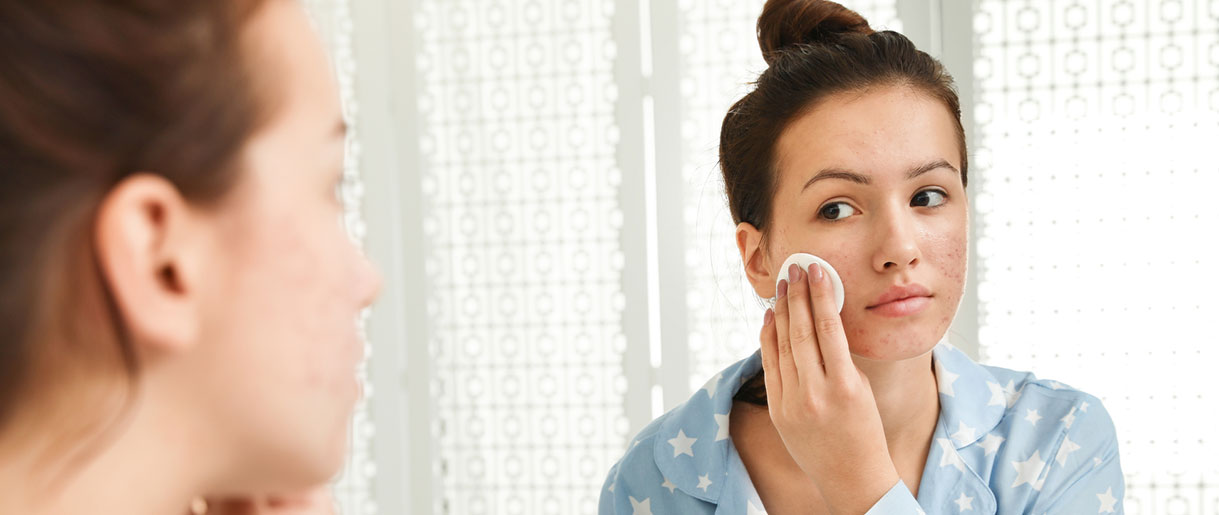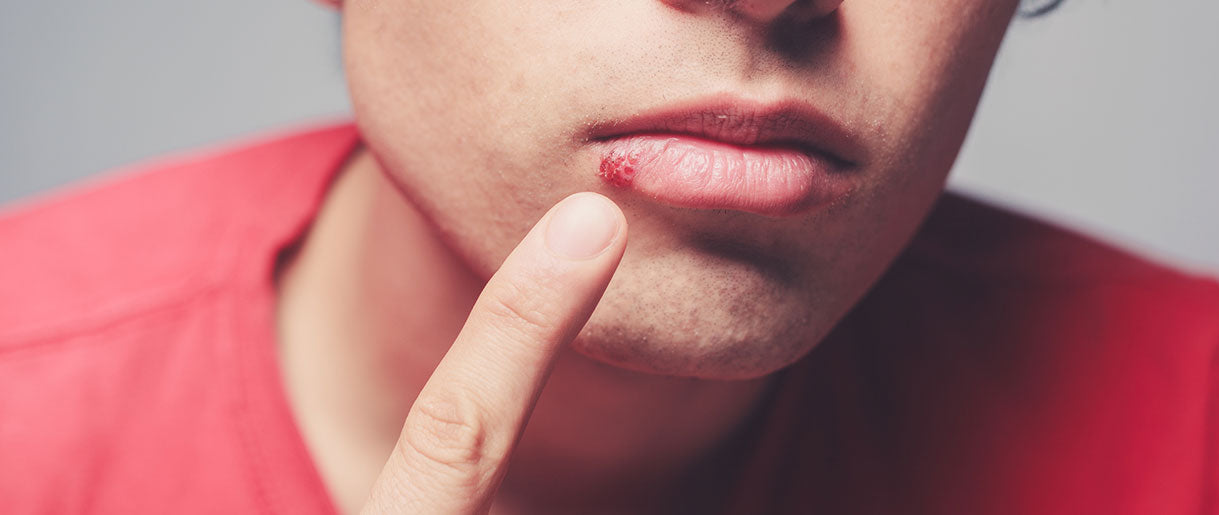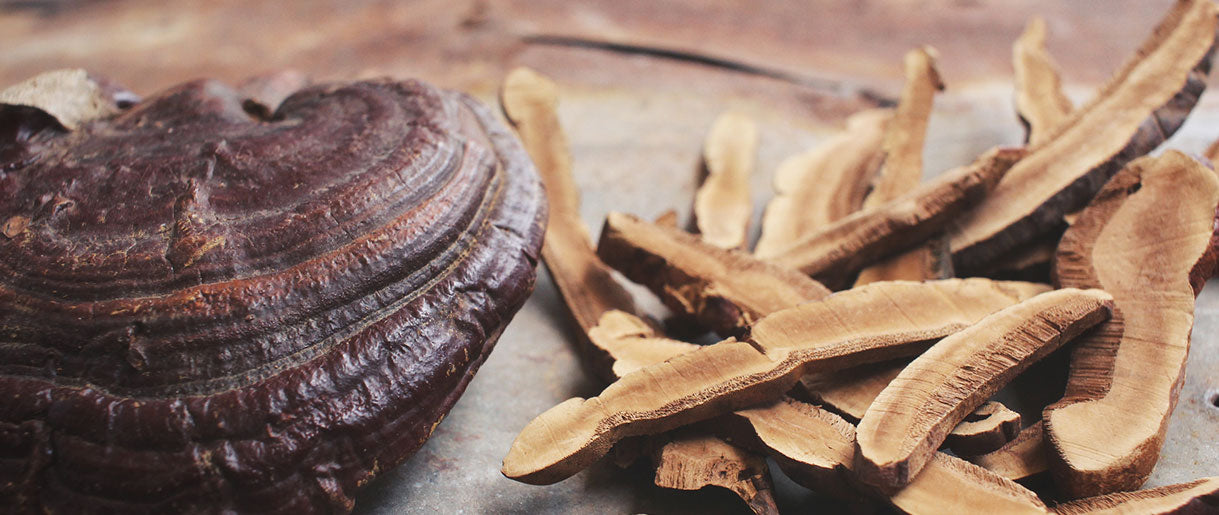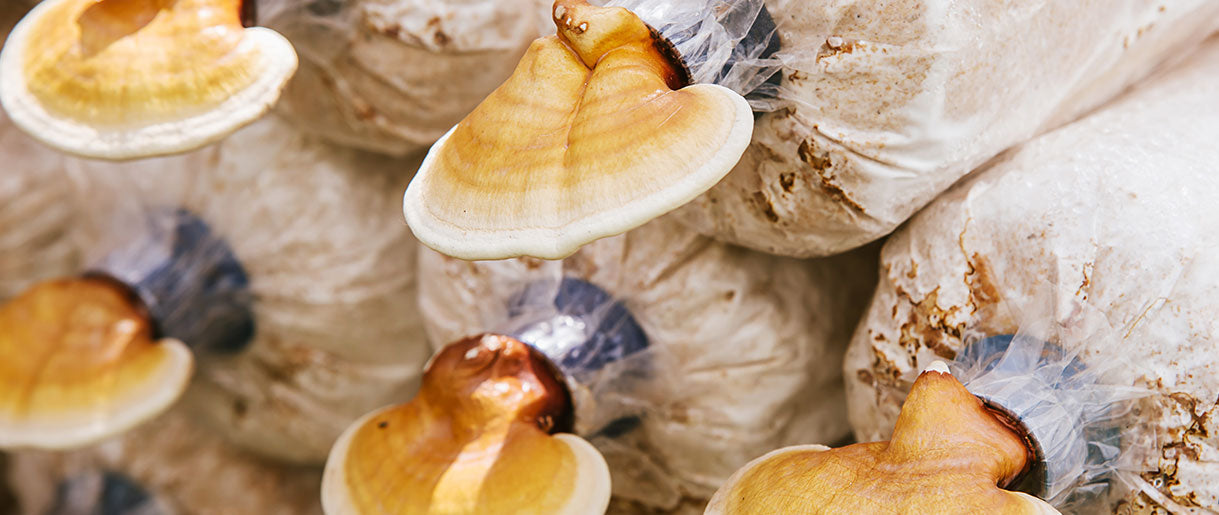Reishi mushrooms have been used in traditional medicine for centuries and have been linked to various health benefits. However, the relationship between reishi mushroom and testosterone levels is not fully understood, and the scientific evidence is inconclusive.
Some animal studies have suggested that the consumption of reishi mushrooms could lower testosterone levels, possibly due to the presence of compounds inhibiting the 5-alpha reductase. However, these findings haven't been thoroughly studied in humans, and results may vary significantly. More research is needed to determine the definitive effect of reishi mushrooms on testosterone levels.
This article aims to delve deeper into this topic, exploring Reishi's impact on testosterone, the role of Reishi mushroom in hormonal health, and the potential benefits and risks of its consumption. We will also look at some of the latest research studies that have attempted to shed more light on this complex relationship.
Our goal is to provide a balanced, evidence-based viewpoint to guide you in making informed decisions about incorporating reishi mushrooms into your diet for testosterone-related health concerns. So, let's embark on this exploratory journey.
The Roots of the Reishi Mushroom and Testosterone Connection

Reishi mushroom, scientifically known as Ganoderma lucidum, has been used in traditional Chinese medicine for thousands of years, believed to possess various healing properties.
Among these beliefs is the idea that Reishi has anti-androgenic effects. In addition, it has been thought to manipulate androgen hormones, including testosterone, potentially addressing certain hormone imbalances.
Ganoderma Lucidum: The Science Behind the Myth
Scientific interest in the testosterone-related effects of Ganoderma lucidum started when researchers began investigating its potential anti-androgen effects. Some animal studies discovered that(1) reishi mushroom can have an anti-androgen mechanism, which results from certain bioactive compounds found in the mushroom.
The mechanism involves inhibiting testosterone production and function, mainly by blocking the conversion of testosterone into DHT (dihydrotestosterone), a more potent androgen. In simple terms, Reishi mushroom blocks DHT conversion, which theoretically could lower free testosterone levels.
Interesting Read: Learn about Lion's mane's effect on DHT.
A Deep Dive into Ganoderma Lucidum and Testosterone Studies

Studies on Ganoderma lucidum have observed that the mushroom's consumption in high doses resulted in significantly reduced plasma levels of free testosterone in animal subjects.
It's thought that the compounds in Reishi could potentially lower free testosterone levels by inhibiting the enzyme responsible for this conversion. However, the studies we have so far have primarily been on animals, and it's uncertain how these findings may translate to humans.
Ganoderma Lucidum and Human Androgen Levels
Despite the animal studies, concrete evidence on how Ganoderma lucidum might affect human androgen levels is lacking. While the mushroom has demonstrated anti-androgenic properties in animal models, it's yet to be conclusively shown whether it significantly alters human androgen levels or free testosterone levels. The enzyme that converts testosterone into DHT is also present in humans, but it is unclear whether reishi consumption has the same effect on this process in the human body.
Reishi Mushroom: A Powerhouse of Chemical Constituents
Reishi mushrooms, also known as Reishi Ganoderma Lucidum, are rich in various bioactive compounds. These active compounds range from polysaccharides, triterpenoids, and proteins, to sterols and more.
Notably, some of these compounds have demonstrated potential anti-androgenic effects, which could alter the function of androgen hormones, including testosterone. One mechanism noted is that the Reishi mushroom blocks DHT (dihydrotestosterone) formation, a more potent form of testosterone. This could theoretically contribute to decreases in free testosterone.
Interactions with the Human Endocrine System: The Active Compounds at Work
One of the primary active compounds in Reishi Ganoderma Lucidum is the polysaccharide beta-glucan, known for its immune-enhancing and anti-cancer effects. Beta-glucans make Reishi beneficial for treating cancer.
Another important group of compounds is triterpenoids, believed to be responsible for Reishi's potential anti-androgenic effect. These triterpenoids are thought to inhibit the enzyme 5-alpha reductase, which converts testosterone into DHT. This weak anti-androgen effect of Reishi could have several implications for hormonal health.
The ability of Reishi Ganoderma Lucidum to inhibit 5-alpha reductase has made it a topic of interest for conditions like androgenic alopecia (a type of hair loss) and polycystic ovarian syndrome (PCOS), where excessive testosterone production is a risk factor. Reishi might benefit these conditions by lowering serum testosterone levels, although more research is needed to confirm this.
Furthermore, the potential testosterone-reducing properties of Reishi might offer a way to correct hormone imbalances in certain conditions. For example, the natural anti-androgens in Reishi might address symptoms associated with endocrine-mediated disorders, like menopausal symptoms in women or some aspects of sexual health in men.
Yet, it's important to note that while Reishi mushrooms may have these potential hormonal effects, their impact is likely subtle. They're not highly effective anti-androgen, but they might be beneficial with other treatments or lifestyle changes.
In addition, Reishi's potential to enhance insulin sensitivity could also benefit individuals with PCOS, where insulin resistance is often a problem. This property also makes Reishi beneficial for people with diabetes.
As for the anti-cancer effects, it's worth noting that some studies have explored Reishi's potential benefits for prostate cancer, where androgens like testosterone play a crucial role. However, more research is needed to understand whether Reishi's impact on normal testosterone levels can significantly affect this condition.
Does Reishi Mushroom Increase Testosterone? Science Shows Otherwise

Animal Studies on Reishi Mushroom and Testosterone Levels
Research involving Reishi mushrooms and testosterone has primarily been conducted on animal models. For example, several studies have found that high doses of Reishi can decrease free testosterone levels in male mice.
These studies suggest that the active compounds contained in Reishi may inhibit testosterone production and function, primarily by blocking the enzyme that converts testosterone into DHT. In other words, Reishi mushrooms block DHT conversion, which could result in lower levels of circulating testosterone.
Existing Human Studies on Reishi Mushroom and Testosterone
There are fewer studies on the impact of Reishi mushrooms on testosterone levels in humans than in animal studies. Some preliminary findings suggest that Reishi may have similar testosterone-lowering effects in men, especially when consumed in high quantities. However, these results are preliminary, and more research is needed to confirm these effects.
Additionally, some research has suggested that the natural anti-androgens in Reishi could address certain symptoms of menopause in women, although this research is also in its early stages.
Analyzing the Results: The Impact of Reishi on Testosterone Levels
Given the current state of research, Reishi mushrooms could potentially lower testosterone levels, at least in animal models. This is mainly attributed to its potential ability to block DHT conversion, which theoretically could decrease circulating testosterone levels. However, human studies are less conclusive, so we must interpret these results cautiously.
Reishi's anti-androgenic properties might help reduce symptoms related to androgen-dependent conditions. For example, Reishi fights hair loss caused by excessive DHT and may potentially relieve menopausal symptoms. The active compounds in Reishi may also influence the production of other hormones like luteinizing hormone, which plays a key role in testosterone production.
However, it's important to remember that the evidence is not strong enough yet to make definitive claims about the effects of Reishi mushrooms on testosterone levels in humans.
More robust, controlled human studies are needed to verify these effects and to better understand the potential uses and limitations of Reishi in the context of hormonal health. Therefore, consultation with a healthcare provider is recommended before starting any new supplement regimen.
Other Benefits of Using Reishi Mushrooms

Immune System Support
One of the most well-documented benefits of Reishi mushrooms, often referred to as medicinal mushrooms, is their ability to support the immune system. This is because they're packed with beta-glucans, a polysaccharide that can boost the immune response. As a result, reishi supplementation can enhance immune function and potentially improve the body's resistance to various illnesses.
The Anti-Inflammatory Properties of Reishi
Reishi mushrooms are also known for their potent anti-inflammatory properties. Their bioactive compounds can inhibit the production of inflammatory cytokines, potentially helping to manage inflammation-related conditions. This important anti-androgen effect might also play a role in addressing inflammation-related conditions tied to hormonal imbalances.
Sleep and Stress: A Potent Solution
Another area where Reishi mushrooms have shown promise is in promoting better sleep and managing stress. Some studies have found that Reishi can improve sleep quality with its calming effect. Reishi can also fight anxiety and alleviate stress, two conditions that affect sleep quality.
Anti-Cancer Effects of Reishi: A Focus on Prostate and Breast Cancer
Reishi mushrooms have also been studied for their potential anti-cancer effects, particularly in the context of prostate cancer and breast cancer. Some lab studies have found that the bioactive compounds in Reishi can inhibit the growth of human breast cancer cells and prostate cancer cells. They're thought to do this partly through their potential anti-androgenic properties, which could theoretically reduce the growth of cancers fueled by androgens like testosterone.
Specifically, it's suggested that Reishi mushrooms block DHT, a potent form of testosterone, which could theoretically inhibit the progression of prostate cancer and benign prostatic hyperplasia (BPH), a condition characterized by an enlarged prostate. In addition, for breast cancer, it's suggested that the natural anti-androgens in Reishi might help address symptoms like cyclical breast pain, which can be linked to hormone fluctuations.
How to Add Reishi to Your Diet for Hormonal Balance

Common Ways of Using Reishi
Reishi mushrooms can be consumed in a variety of forms. Here are some of the most popular ways:
- Powder: Reishi mushroom powder can be added to smoothies, coffee, or tea. It's a quick and easy way to incorporate this superfood into your diet.
- Capsules: If you prefer a more straightforward method of consumption, Reishi capsules can be a convenient option.
- Tea: Reishi mushroom tea, made by steeping dried Reishi mushrooms or powder in hot water, is a soothing way to enjoy its benefits.
- Tinctures: Reishi tinctures are another convenient form. These liquid extracts can be taken directly or added to water or juice.
Suggested Dosage, Frequency, and Best Time for Consumption
The ideal dosage of Reishi mushroom can vary depending on individual health goals and the specific form of Reishi being used. However, a general guideline for adults is to take about 1-1.5 grams of Reishi powder or 1-2 capsules daily. If using a tincture, follow the manufacturer's instructions.
As for the best time to take Reishi, it's generally considered safe to consume at any time of the day. However, some prefer it in the evening due to its potential calming effects.
Please note that these are general suggestions, and you should consult a healthcare provider for personalized advice.
Healthy Recipes Incorporating Reishi Mushroom
Incorporating Reishi into your meals can be as simple as adding powder to your recipes. Here are a couple of ideas:
Reishi Mushroom Smoothie
Add 1 teaspoon of Reishi powder to your favorite smoothie blend. A mix of bananas, blueberries, spinach, almond milk, and Reishi powder can make a nutrient-packed breakfast.
Reishi Tea Latte
Brew a cup of Reishi tea. Then, heat and froth some almond milk (or any milk of your choice). If desired, add a dash of cinnamon and sweetener, pour the frothed milk into the brewed tea, and you have a soothing Reishi tea latte!
FAQs About Reishi Mushroom Testosterone Benefits
Does Reishi Mushroom Block DHT?
Some evidence from laboratory and animal studies suggests Reishi mushrooms, or Ganoderma lucidum, might inhibit DHT (dihydrotestosterone), a potent androgen hormone. Specifically, some research has found that certain bioactive compounds in Reishi mushrooms can inhibit the enzyme 5-alpha reductase, which converts testosterone into DHT.
In theory, this means that Reishi might help reduce DHT levels, which could potentially be beneficial for conditions influenced by DHT, such as androgenetic alopecia (a common form of hair loss), prostate enlargement (benign prostatic hyperplasia), and perhaps even prostate cancer.
Does Reishi Affect Hormones?
Reishi mushrooms (Ganoderma lucidum) are thought to potentially impact the endocrine system responsible for hormone production and regulation. Preliminary studies suggest that Reishi may have anti-androgenic effects, which might inhibit the activity or production of androgens, a group of hormones that includes testosterone and dihydrotestosterone (DHT).
Research in laboratory and animal models has suggested that compounds in Reishi may inhibit the enzyme 5-alpha reductase, which converts testosterone into the more potent androgen DHT. By inhibiting this enzyme, Reishi could potentially reduce DHT levels. This could theoretically impact various androgen-dependent conditions, such as certain forms of hair loss and benign prostatic hyperplasia.
Reishi mushrooms may also interact with other hormones. For instance, some animal studies have suggested that Reishi could affect insulin levels, a hormone that regulates blood sugar levels.
What Are The Risks Of Reishi?
While generally safe for most people, Reishi mushrooms can potentially cause side effects and have some associated risks. Common side effects are mild and may include dry mouth, throat, nasal area, upset stomach, or digestive discomfort. However, more severe reactions, such as itching, rashes, nosebleeds, or bloody stools, can occur. In addition, some case reports suggest potential liver toxicity with long-term use or high doses, but this seems relatively rare.
Reishi mushrooms can interact with certain medications, including anticoagulants, antiplatelets, and diabetes drugs, and may exacerbate symptoms in individuals with autoimmune diseases due to their immune-stimulating effects. In addition, there is insufficient evidence to confirm Reishi's safety during pregnancy or breastfeeding, so usage during these periods is usually not recommended. As with any supplement, it's essential to consult a healthcare provider before using Reishi mushrooms to understand the potential benefits and risks.
Is Reishi Estrogenic?
The relationship between Reishi mushrooms (Ganoderma lucidum) and estrogen, the primary female sex hormone, is unclear. However, some preliminary studies have suggested that Reishi mushrooms may have phytoestrogenic properties, meaning that they may contain compounds that mimic estrogen's effects in the body.Phytoestrogens can bind to estrogen receptors and potentially influence estrogenic activity.
However, the available research is mainly limited to laboratory and animal studies, and these findings may not directly translate to humans. More research is needed to fully understand the potential estrogenic effects of Reishi mushrooms in humans.
Key Takeaways
Reishi mushrooms, known as Ganoderma lucidum, have been the focus of scientific interest due to their potential impact on testosterone levels and overall hormonal health. Some studies, primarily in animals, suggest that the active compounds in Reishi may inhibit the conversion of testosterone to DHT, a more potent androgen hormone. This could potentially affect conditions such as androgenic alopecia, benign prostatic hyperplasia, and even certain types of cancer.
Furthermore, Reishi mushrooms are hailed for their various health benefits, ranging from immune support and anti-inflammatory properties to potential effects on sleep, stress, and cancer. They can be incorporated into your diet in various forms like powder, capsules, tea, and tincture, providing a versatile way to reap these potential benefits.
However, it is essential to emphasize the need for further research, particularly in humans, to understand the relationship between Reishi mushrooms and testosterone levels fully. Preliminary findings, while promising, are not yet sufficient to make definitive conclusions. Therefore, anyone considering using Reishi mushrooms for their potential hormone-modulating effects should do so under the guidance of a healthcare provider.
Now, we'd love to hear from you. Have you tried Reishi mushrooms? Have they affected your health in any way? Do you have any other questions or comments about Reishi and testosterone? Please share your thoughts and experiences in the comments section below.
References
- An Update on Plant Derived Anti-Androgens (1)https://www.ncbi.nlm.nih.gov/pmc/articles/PMC3693613/









Let Us Know Your Comments